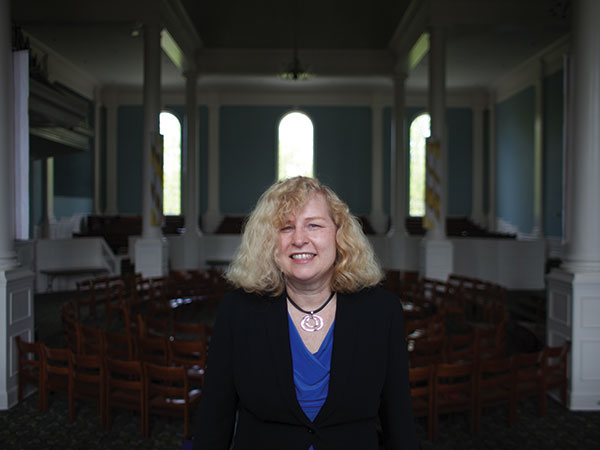The “Inside the PTS Curriculum” series gives you an inside look at what students are learning in their courses at Pittsburgh Theological Seminary. Each article focuses on one class, its subject matter, what students can expect to learn, the required texts, and the kinds of assignments students can expect. We’ll let you know whether the course is required or available for the Master of Divinity (MDiv), the Master of Arts in Pastoral Studies (MAPS), or Master of Theological Studies (MTS). Each article will include the professors’ bio.
This week’s course is “Exploring Christian Worship.”
About Exploring Christian Worship
During this term, Pittsburgh Theological Seminary students will be learning about the study of the practices of Christian worship with the Rev. Dr. Angela Hancock in the class “Exploring Christian Worship.” This course is open to students in the Master of Divinity (MDiv) degree, Master of Arts in Pastoral Studies (MAPS) degree, or Master of Theology (MTS) degree program.
“Exploring Christian Worship” provides an introduction to the study of the practices of Christian worship with attention to the ways the Bible, theology, tradition, and context shape what Christian communities do when they gather to worship God. Led by faculty representing a variety of theological disciplines and perspectives, each section of WS110 considers particular dimensions of Christian worship, promoting theological reflection, historical and socio-cultural awareness, intellectual curiosity, and participation in the worship life of the seminary community and the wider church. The course is also designed to introduce the resources, tools, and skills that contribute to effective written communication at the master’s level. When Dr. Hancock teaches “Exploring Christian Worship,” she focuses on how Christian communities worship God in relation to the experience of ongoing suffering, evil, and death.
By the completion of this course, students will be able to articulate a theology of worship, with attention to its formative power, informed by one’s “home” liturgical tradition while also describing and discussing the liturgical traditions of others with critical generosity. Students will offer evidence of participation in and theological reflection on the practices of Christian worship while using basic participant-observer skills in exploring a local worship practice. They’ll draw on biblical, theological, and historical resources when assessing a liturgical activity, text, or object, with attention to the role of social and cultural context. During the class, students will exhibit intellectual curiosity, as demonstrated through close readings of texts, raising relevant critical questions, and identifying areas for future exploration while also effectively drawing on library resources (catalog, media and print databases, and other online sources) for the completion of writing assignments and presentations, and skillfully communicating findings in both written and oral form. Students will successfully research, develop, and write a short paper on a practice, text, or object related to Christian worship, demonstrating the ability to identify an appropriate thesis statement or research question, offer supporting evidence, make effective use of resources, sustain an argument, and synthesize course materials.
Assignments include writing reflections and visits to the Seminary’s Center for Writing and Learning Support, a paper on a lament psalm and a hymn, plus a worship journal and final paper on an artifact. As to required texts, student will read You Are What You Love: The Spiritual Power of Habit (James K. A. Smith, Raging with Compassion: Pastoral Responses to the Problem of Evil (John Swinton), the Bible, and other handouts.
About the Instructor
The Rev. Dr. Angela Dienhart Hancock serves as associate professor of homiletics and worship. She is an ordained Minister of Word and Sacrament in the Presbyterian Church (U.S.A.) and has served as pastor to churches in Pennsylvania, Kentucky, and Tennessee. Hancock is the author of Karl Barth’s Emergency Homiletic, 1932-33: A Summons to Prophetic Witness at the Dawn of the Third Reich, a contextual interpretation of Swiss theologian Karl Barth’s lectures on preaching in the early 1930s, based on unpublished archival material. Her current research explores Karl Barth’s contribution to the ethics of deliberation in Christian communities and the relationship between political and theological rhetoric. Hancock continues to preach, teach, and lead worship in a variety of settings.

